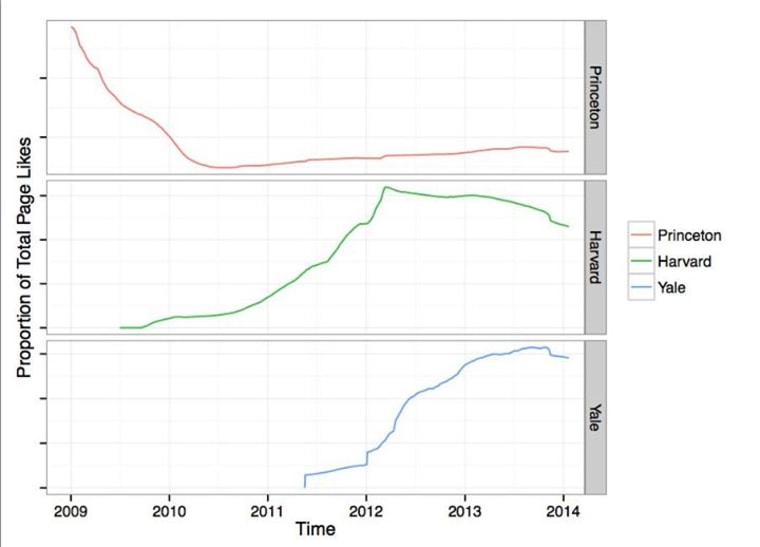A study by researchers at Princeton University made waves this week with its prediction that Facebook could lose 80 percent of its users by 2017. Facebook has struck back with a post using similar statistical techniques to predict that Princeton itself may be facing irreversible decline.
The Princeton study looked at Google Trends data for Myspace and Facebook, using the former to predict the demise of the latter. As Facebook points out, this analysis is rather one-dimensional.
By using similar methods ("likes," mentions in scholarly papers, Google searches) Facebook creates convincing-looking graphs that indicate Princeton is losing ground compared with its rivals and may have no students at all by 2021.
In fact, according to Facebook's interpretation of Google Trends data, there will be no air left on Earth by 2060, since interest in that is declining, too.
It's all in jest, of course, says a note at the end of the Facebook post:
P.S. We don’t really think Princeton or the world’s air supply is going anywhere soon. We love Princeton (and air). As data scientists, we wanted to give a fun reminder that not all research is created equal – and some methods of analysis lead to pretty crazy conclusions.
In the Princeton researchers' defense, it's not like they announced their study far and wide, and they have declined to comment before the paper, which you can read here (PDF), is peer-reviewed. Applying the ideas of epidemiology (which studies the spread and behavior of communicable disease) is an interesting way to think about social networks. After all, the field of biology is where terms like "meme" and "viral" came from in the first place.
That said, serious claims regarding the imminent destruction of the world's biggest social network are bound to go viral — perhaps the authors of the paper will be a bit better prepared for the attention next time.
Devin Coldewey is a contributing writer for NBC News Digital. His personal website is coldewey.cc.
